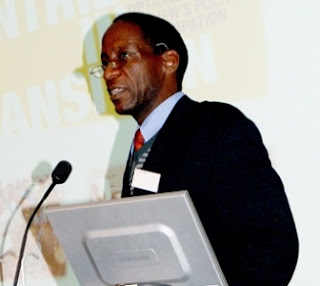The Media institute of Southern Africa (MISA)Zimbabwe in collaboration with (ZACRAS) Zimbabwe Association Of Community Radio Stations,hosted a Community Radio festival in honour of various broadcasting stations in the country recntly.
The theme was "A decade of waiting,Give the communities a voice". and the festival comes in a time when talk is about to free the airwaves.MISA programmes officer Koliwe Majama said the media institute is making a statement."We are making a political statement.At a time whereby commercial radio licences are being licensed community ones are being ignored.Some of these community radios have been in existence for more than ten years but they are not recognised.So this is only to question and address the awarding of the broadcasting licences,"she said.
Majama added that the stations have come together to celebrate the accomplishments achieved so far by stations,despite being denied licenses opportunities."We brought out all the community radio stations in the country.There are about seven rural and twelve urban.They exhibited their works at the Media Centre.These radios have no proper listenership and we can only talk of listenership when they are licensed.They were pre-recorded programmes which communities would listen to in groups".she said.
Radio stations that participated include Radio FM,Corah,Kwelaz,Wezhira and others.A training workshop targeted at well-equiped community radios with existing relations with the public also took place.The training intends to ensure that the community radio stations come up with business plans which will then ensure sustainability beyond the funding era.
The issue of freeing the airwaves has been a hot topic with many private players acccusing the Broadcasting Authority of Zimbabwe (BAZ) of being biased towards state-affiliated players.In November last year there was a call for commercial radio licences and they were awarded to AB Communications' Zi Radio and Zimpapers' Talk Radio now Star FM making them the first two commercial private radios.
BAZ had received 14 aplications from different players commercial radio licences.In March this year Vox Media productions,owners of Radio Voice of the People (Vop) re-applied for the license after being denied last year.The organisation was among four potential broadcasters that were called for interviews but did not succeed.
Vox Media has since approached the courts to challenge the BAZ decision.Ministry of media,Information and Publicity Webster Shamu has been under fire from some parliamentarians over several issues to do with broadcasting.
They accused him of personalising the ministry and stalling the issue of media reforms.




